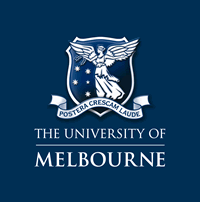Prof D Jamieson, Prof Richard Curry
No more applications being accepted
Funded PhD Project (Students Worldwide)
About the Project
Einstein’s most revolutionary idea, of the light quantum, has led to the concept for radical new types of quantum technology that uses the strange rules of quantum mechanics to process information encoded in quantum bits, qubits. Especially promising qubits are ion implanted donor atoms in isotopically pure semiconductors including silicon. Successful development of large-scale devices that can solve important problems requires overcoming formidable scientific and technical obstacles. With this project we will develop methods to manipulate and interrogate single atoms with unprecedented precision. In both Manchester and Melbourne, we are developing complementary methods for the fabrication a large-scale donor spin qubit device using the standard tools of the silicon information technology industry. To achieve this goal we have constructed single ion implantation systems that employs either (Melbourne) a nanostencil scanner or (Manchester) a focused ion beam for sub-20 nm localization of the implanted donor atom qubits that is compatible with the engineering process flow for a full device. In Melbourne we have also developed an in-situ 28Si enrichment process that could allow the spin-free background of 28-Si to give very long spin lifetimes with advantages for long-lived quantum states. If we can solve the problem of the precise localization of single donor atoms in silicon devices this could allow the construction of large-scale quantum devices based on donors in silicon in the near term.
Funding Notes
Candidates must meet the entry requirements of both Universities to be accepted. They will spend at least a year at each institution over the course of their candidature and be eligible to graduate with a jointly awarded PhD recognised with a testamur from each University.
Minimum entry requirements for a PhD at Melbourne are summarised here: https://study.unimelb.edu.au/how-to-apply/graduate-research/international-applications/entry-requirements
All participants have access to UoM living allowance support. Scholarships are awarded for 3 years, with the possibility of 6 months extension. All participants receive a UoM tuition fee waiver for up to 4 years.

 Continue with Facebook
Continue with Facebook

